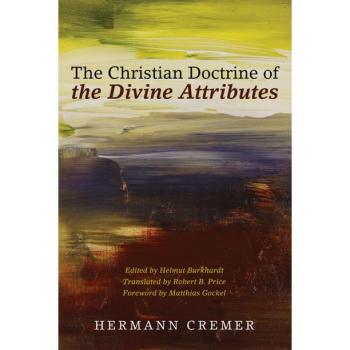Why Not Polygamy? A Question to Progressive Churches
Recently several churches with which I have friendly relations and that I respect as good Christian congregations have adopted gay-friendly policies that are generally called (among Christian theologians and leaders) “welcoming and affirming.” The precise details of the policies differ from one congregation to another, but, in most cases, the decision is to allow gay marriages within the church building, performed by members of the congregation, recognizing same-sex couples as legitimately married in God’s sight, and allowing openly gay people who are proud of being gay and are having intimate sexual relations (or seeking to after marriage) with people of the same sex to serve as leaders of the congregation.
This must be acknowledged as a major “break” with Christian tradition. It does not seem that most of the churches making this move care about that. When asked about it, they tend to point back to a time when churches were racially segregated and (for example) African-Americans could not join most churches that were not primarily African-American. And they point back to “sister churches” that began to ordain women and allow women to be congregational leaders and even pastors. And they point to changes with regard to divorced and remarried people and the fact that they now frequently are welcomed and affirmed even by conservative congregations.
But I am troubled by their seeming inconsistency. Only time will tell—how inconsistent they are being. But as I look into my (imaginary) “crystal ball” I see a time coming when, as a result of immigration and cultural change these same churches will be asked to welcome and affirm plural marriages. Why not?
*Sidebar: The opinions expressed here are my own (or those of the guest writer); I do not speak for any other person, group or organization; nor do I imply that the opinions expressed here reflect those of any other person, group or organization unless I say so specifically. Before commenting read the entire post and the “Note to commenters” at its end.*
I see this as the inevitable next step for progressive churches. Sooner rather than later they will be faced with Christians involved in plural marriages (whether legal or not) and asked to affirm them as qualified to be members and serve as congregational leaders. And the leaders of the congregations will be asked to bless plural marriages.
After all, the Bible nowhere condemns plural marriage and tradition does not matter.
Now, I already know what they will say in response: No, we will not do that with regard to plural marriage because plural marriage hurts women. But does it—necessarily? What if two or more women really want to be married to one husband? Is it not paternalistic to tell them they don’t really want that or that it isn’t good for them? And what if the situation is one woman married to (or wanting to be married to) two men? (That actually happened in the city where I live about a year ago and the woman was jailed for bigamy. But why? IF there was no financial fraud involved and both men knew about the arrangement….?)
Yes, bigamy and plural marriage are still illegal in the United States. But what if that changes? And does legality really play into what the church should do in terms of blessing marriage situations—in order to be kind and inclusive?
I know this question haunts many progressive Christians because “they dost protest too much” whenever I bring it up. Instead of engaging with me in a calm, civil discussion about it, here they have almost uniformly brushed it off as silly. The exact same response was made by conservative Christians years ago when some progressive-minded Christians began to talk about gay marriage within the churches. The whole subject was dismissed as silly and/or dangerous.
If mutuality is the only criterion for Christian marriage, and if the Bible nowhere forbids plural marriage, why not welcome and affirm people involved in (or who want and intend to be involved in) plural marriage?
Another objection I have heard and read is that nobody is asking progressive Christian churches to welcome and affirm people involved in plural marriage (or who want to be involved in such).
My response is: Perhaps nobody is asking because they know what your answer will be? Again, that was the case years ago (in my own lifetime) when the only Christian church that would welcome and affirm practicing gay people was the Metropolitan Community Church. Many gay Christians lived “in the closet” but would have come out of the closet—to their churches—if the churches had been pro-active and announced that they were welcoming and affirming before anyone came knocking on their door (figuratively speaking).
And I know there are visitors (for example students) to America who are involved in plural marriage and are Christians. Some of them are men who have more than one wife back “home” in their country of birth and citizenship. They feel they must hide that fact from their adopted church family here. Some of them do not ask for membership or to play any leadership role or teach because they know the church would decline them if they were open about their involvement in plural marriage.
So there are reasons to be pro-active about this issue and be consistent as well. That would mean going to “next step” and announcing that people involved in plural marriages may be candidates for full inclusion and embrace—as members and even teachers and leaders of progressive congregations.
It would seem to be the loving thing to do. Wouldn’t it?
Would someone please give me/us an answer that does not include that plural marriage is necessarily bad for women. Many women involved in plural marriages take umbrage at that and consider it condescending and paternalistic. And even if most plural marriages are bad for women, that does not prove that all plural marriages would be bad for all women. Also, please do not repeat the cliché that “We’ll cross that bridge when we come to it.” Very possibly the “bridge” is already here and you just don’t know it.
I look forward to calm, reasonable responses. I will not approve and post here flaming responses.
*Note to commenters: This blog is not a discussion board; please respond with a question or comment only to me. If you do not share my evangelical Christian perspective (very broadly defined), feel free to ask a question for clarification, but know that this is not a space for debating incommensurate perspectives/worldviews. In any case, know that there is no guarantee that your question or comment will be posted by the moderator or answered by the writer. If you hope for your question or comment to appear here and be answered or responded to, make sure it is civil, respectful, and “on topic.” Do not comment if you have not read the entire post and do not misrepresent what it says. Keep any comment (including questions) to minimal length; do not post essays, sermons or testimonies here. Do not post links to internet sites here. This is a space for expressions of the blogger’s (or guest writers’) opinions and constructive dialogue among evangelical Christians (very broadly defined).

















